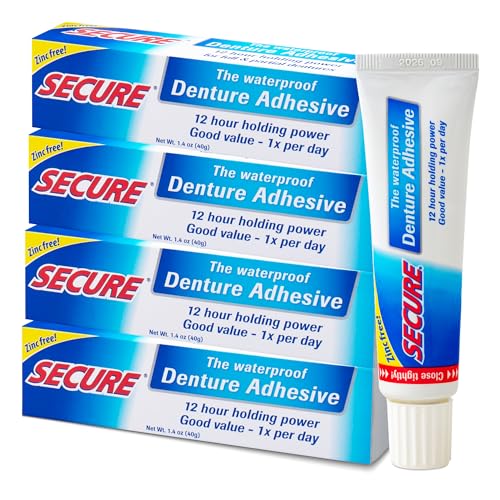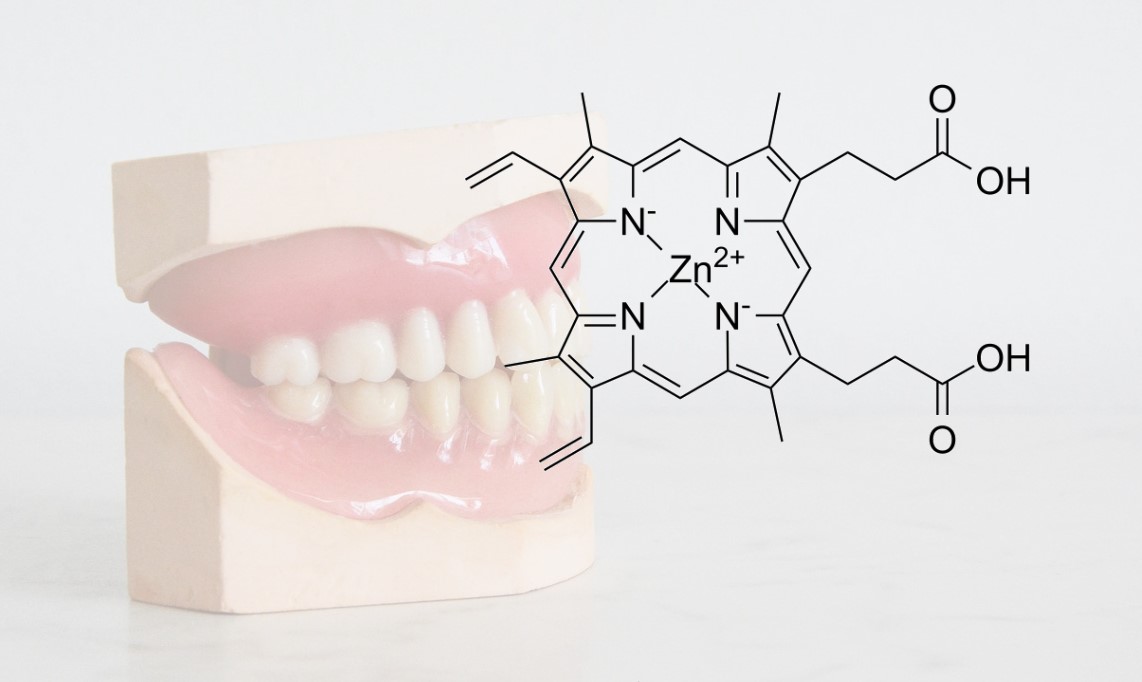Recently, many denture adhesive manufacturers, like Super Poligrip and Fixodent, are under serious scrutiny because of the health risk that has been associated with the content of their products. Most denture adhesives contain zinc, and zinc, when consumed in large quantities, has serious consequences.
However, when denture adhesive becomes inevitable in ensuring denture suction remains in place, denture wearers should only use adhesive in small quantities. The ultimate question has been whether or not these adhesives are dangerous regardless of the quantity used, and here are your answers.
All medical content on this site, including this guide and other product reviews, is written by our team of experienced writers and researchers. All writers from The Toothbrush Expert are recommended and reviewed in the industry. You support us through our editorially chosen links, which earn us commission. Learn more
All of our picks have the American Dental Association (ADA) Seal of Acceptance.
Why do denture adhesives contain Zinc?
Like every other essential nutrient and mineral, zinc is an important mineral in the human body and functions as a growth stimulator. It helps in the development of the bones and helps in boosting cell development.
Therefore, makers of denture adhesives thought it wise to include this essential mineral in adhesives designed to hold the suction of a denture. Furthermore, zinc acts like a binding agent that helps to keep the adhesion and gives extra strength to the dental adhesives.
Since you are using these adhesive products to secure denture adhesive for as long as necessary, wearers must maintain proper hygiene within the suction of the denture. Therefore, zinc acts as an anti-bacterial and anti-inflammatory agent to help fight off plaque and bacteria formation.
Tip
Make sure you clean your dentures every day. There are several good products like; denture cleaners, ultrasonic denture cleaners or denture toothpaste when you use a toothpaste make sure you also take a good toothbrush.
How much Zinc is necessary for denture adhesives?
The quantity of zinc you will find in denture adhesives product varies. On average, you may find that most brands have 17 milligrams of zinc per gram of the adhesive. Popular brands like Fixodent have this composition. Just like mentioned above, zinc in itself is not the problem. At least eight to eleven milligrams are recommended for human consumption per day.
However, the problem lies in the excessive use of denture adhesives to secure the suction of your denture. From the zinc composition in most denture adhesives, it has been scientifically proven that only about two milligrams get absorbed into the body.
The rest of the zinc would remain as adhesion to hold dentures in place or act as a protective agent for the denture. This means that when denture adhesives are used as recommended, the absorption rate stays within the daily zinc quantity recommended for human consumption.
| Preview | Product | Rating | Price | |
|---|---|---|---|---|

|
Secure Waterproof Denture Adhesive - Zinc Free - Extra Strong 12 Hour Hold - 1.4 oz (Pack of 4) |
$28.99 |
Buy on Amazon | |
![Cushion Grip Thermoplastic Denture Adhesive for Refitting and Tightening Loose Dentures [Not a Glue Adhesive, Acts Like a Soft Reliner] (1 Oz) Hold Dentures for Up to 4 Days.](https://m.media-amazon.com/images/I/417lMMk2v-L.jpg) ![Cushion Grip Thermoplastic Denture Adhesive for Refitting and Tightening Loose Dentures [Not a Glue Adhesive, Acts Like a Soft Reliner] (1 Oz) Hold Dentures for Up to 4 Days.](https://m.media-amazon.com/images/I/417lMMk2v-L.jpg) |
Cushion Grip Thermoplastic Denture Adhesive for Refitting and Tightening Loose Dentures [Not a Glue... | 24,424 Reviews |
$15.99
$13.99 |
Buy on Amazon |
  |
Super Poligrip Zinc Free Denture and Partials Adhesive Cream, 2.4 ounce (Pack of 4) |
$19.99
$16.94 |
Buy on Amazon |
Denture adhesives and Zinc Poisoning
Before you punch out the denture in your mouth because of the fear of poisoning, know that the denture itself isn’t the source of zinc in the body and isn’t poisonous. Only the excessive use of the denture adhesives with zinc is poisonous. This doesn’t remove the fact that the benefits from the right intake of zinc are quite astonishing.
Zinc has been scientifically proven to be an enzyme catalyst as it deals with over three hundred enzymes in the body. This makes it easy for zinc to penetrate almost every part of the human body. Therefore, as quickly as it can get to offer necessary nutrients, it can easily become toxic and lead to catastrophic results.
Denture wearers need to understand that applying more denture adhesive isn’t what keeps the denture intact. If your denture doesn’t offer you the comfort you seek, you can consider other dental restoration procedure.
A study has shown that denture wearers’ excessive adhesive application leads to consuming between 300 and 1700 milligrams of zinc per day, which automatically may lead to zinc poisoning.
Zinc poisoning may cause major health issues like paralysis and nerve damage, numbness in the entire body, bone loss in the jaw area, general bone weakness, tingling sensation, and alteration in your digestive system.
Therefore, seek a replacement for your ill-fitting denture rather than apply excessive denture adhesive. You may also have your dentures reclined by a dentist to make them suction properly.
Conclusion: Alternatives to Zinc-based Denture Adhesives
Denture adhesives can be in many forms, and you will find the denture adhesive powders and creams with the most zinc content. Manufacturers are responding to these health risk alerts by manufacturing zinc-free adhesives and perfect alternatives to the traditional zinc-based products we know.
For instance, Secure denture adhesives have a zinc-free brand and are equally water-proof. Also, popular brands like Fixodent and Poligrip are modifying their adhesives and offering zinc-free products. Sadly, consumer protection standards worldwide don’t mandate manufacturers to sell all their ingredients in the product package. Therefore, regardless of your chosen products, use only the recommended quantity and seek alternative dental restoration or consult a professional when your denture becomes loose and uncomfortable.


Dr Michael Jones is the proud founder of The Toothbrush Expert. He has been working as a dentist for 21 years now. Besides his work as a dentist, Michael wants to help people to find the right dental products. His goal is to provide everyone with honest expert reviews on all kinds of dental care products.

